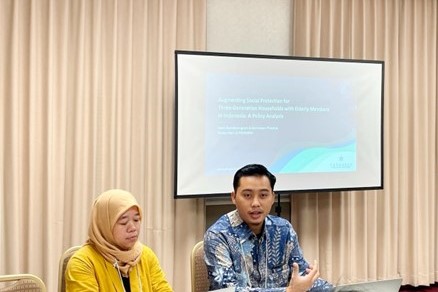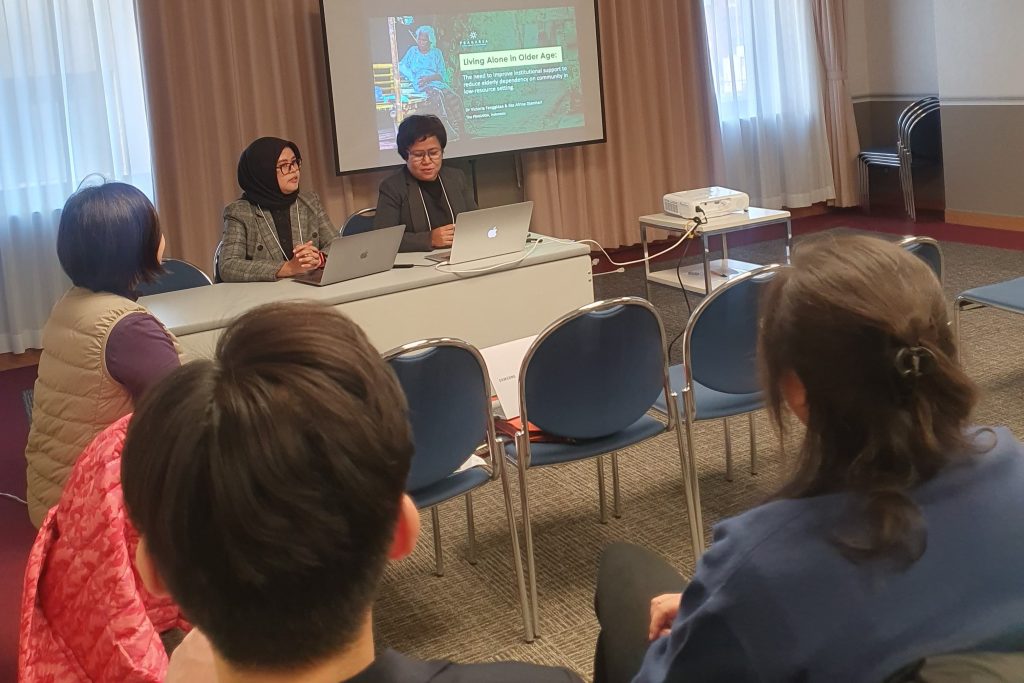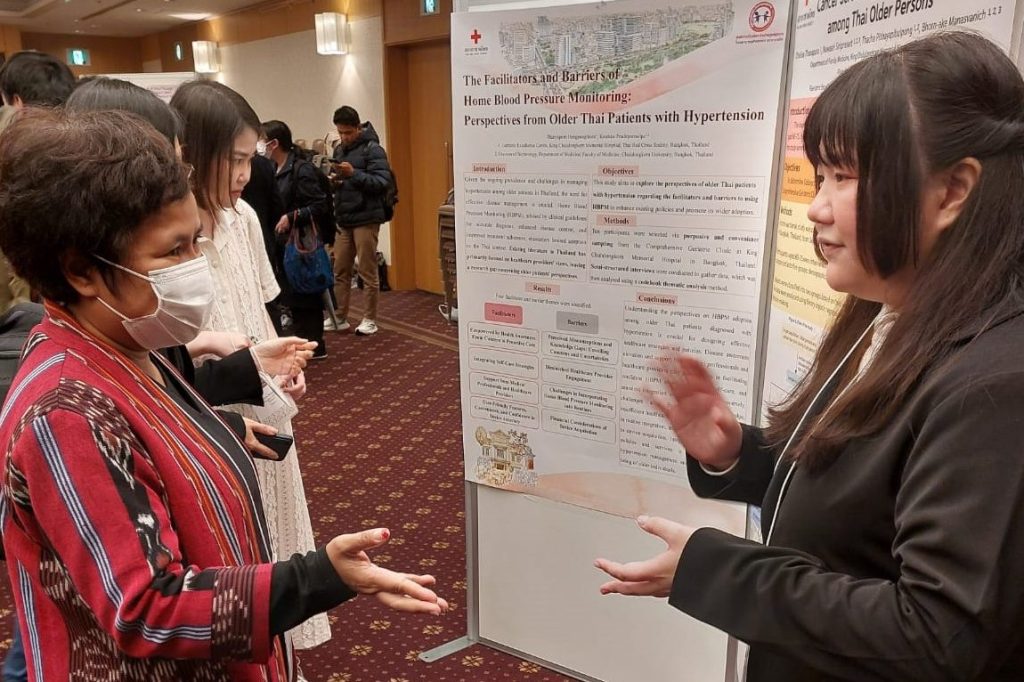
Tokyo, The PRAKARSA - The PRAKARSA had the opportunity to share the results of his study regarding elderly issues in Indonesia at the event Asian Conference on Aging & Gerontology 10th in Tokyo, Japan. Thursday (28/03/2024).
Herni Ramdlaningrum (Program Manager) and Darmawan Prasetya (Social Policy Officer) presented the results of his study at the session breakout entitled "Augmenting Social Protection for Three-Generation Households with Elderly Members in Indonesia: A Policy Analysis (Improving Social Protection for Three Generation Households with Elderly Members in Indonesia: A Policy Analysis)”.
Darmawan explained that Indonesia has entered an era of aging population with the prevalence of elderly people living in poor households. Most of the elderly today also do not have higher education and do not have pension security. "This situation makes the family the main support for many elderly people in Indonesia, especially as three-generation households in Indonesia reach 34,68%. This trend will likely increase along with the increase in the number of elderly people and the tendency of elderly people to stay with their children and grandchildren as a form of family norm. in Indonesia," he said.
This situation gave rise to a situation sandwich for the middle generation who have to care for the elderly and children (grandchildren). The sandwich generation has household spending 3% higher than households without seniors.
Herni explained that even though this situation has been going on for years, the government has not yet addressed it in a focused manner. "Limited state intervention in three-generation households in Indonesia not only raises the risk of the elderly not being well cared for, but also the middle generation becoming a group vulnerable to poverty," said Herni.
"Policies in Indonesia have so far been more targeted at poverty alleviation, so that many three-generation households who are vulnerable and need non-financial support still do not receive adequate support from the state," added Herni.
The results of an analysis of existing programs in Indonesia, Herni and Awan found that most programs such as BPNT, PKH, JKN, and Pensiun are partial. This means that not all residents have access to the benefits of this program, because the requirements are limited.
"The conditions for accessing these benefits are such as having to be poor or a former state employee, only JKN has opened access to all residents in Indonesia," explained Awan.
This situation means that more than 14% of the elderly population in Indonesia have to work more than 40 hours every week. And more than a quarter of elderly people in Indonesia who work only earn less than 2 million per month.
Herni and Awan concluded that although the Indonesian state has created several programs targeting families, the scope and benefits are small. This pattern has been going on for years so that the Welfare Regime in Indonesia is like a chameleon, changing not because of planning but rather due to sporadic responses and is prone to not continuing.
As a recommendation, Herni and Awan emphasized that many further studies are needed to discuss how families and the state can work together to support the lives of the elderly, especially the elderly in three-generation households and those in developing countries.



